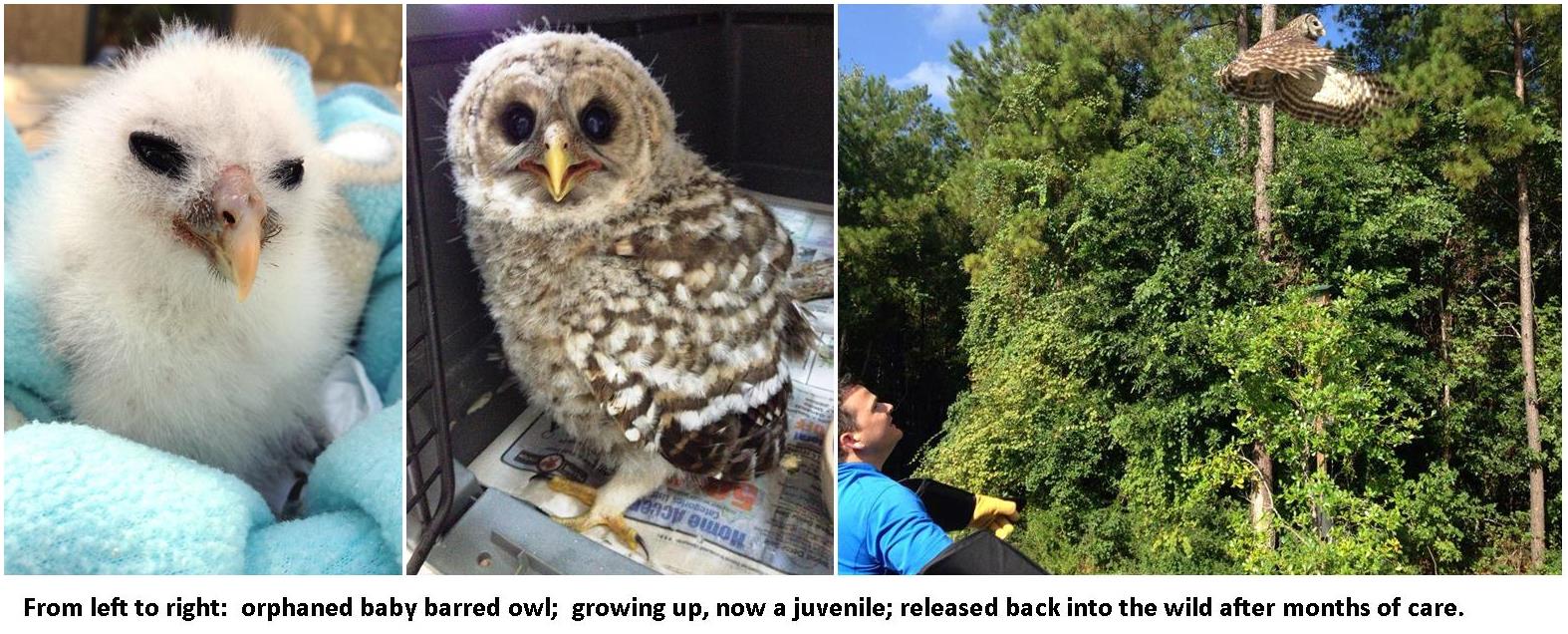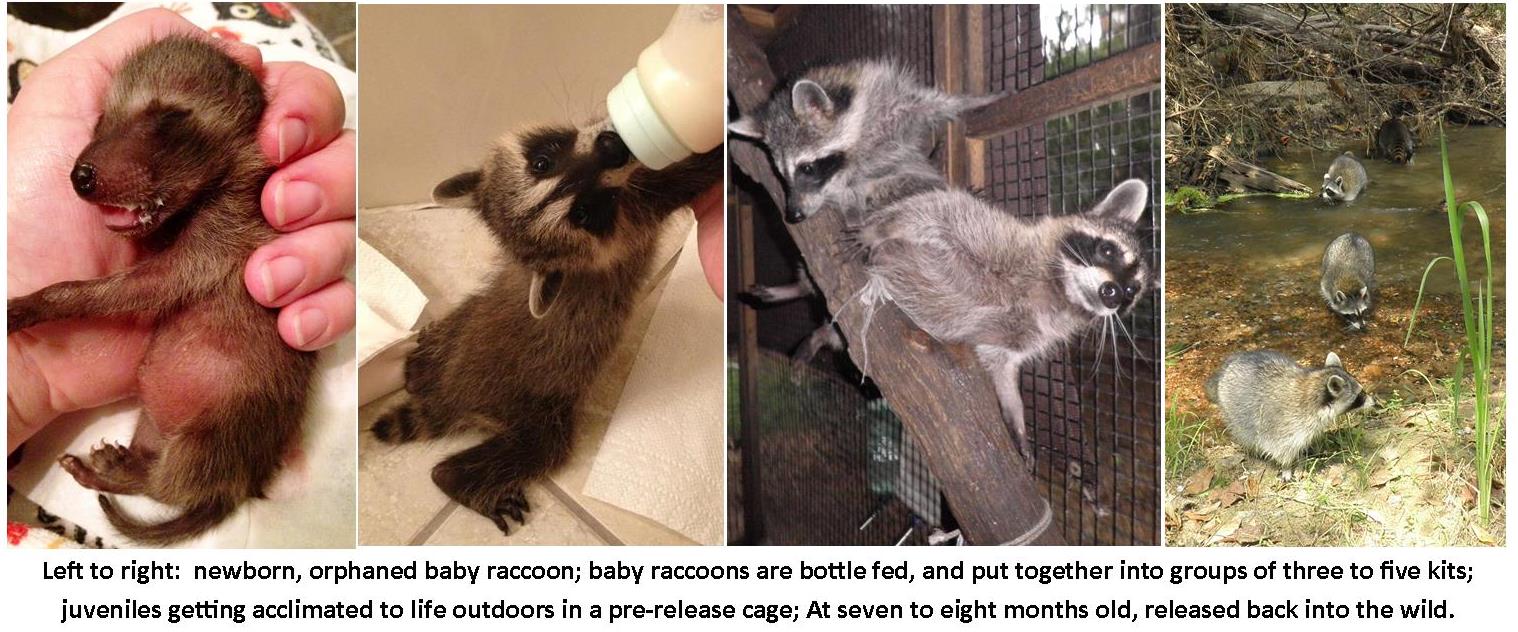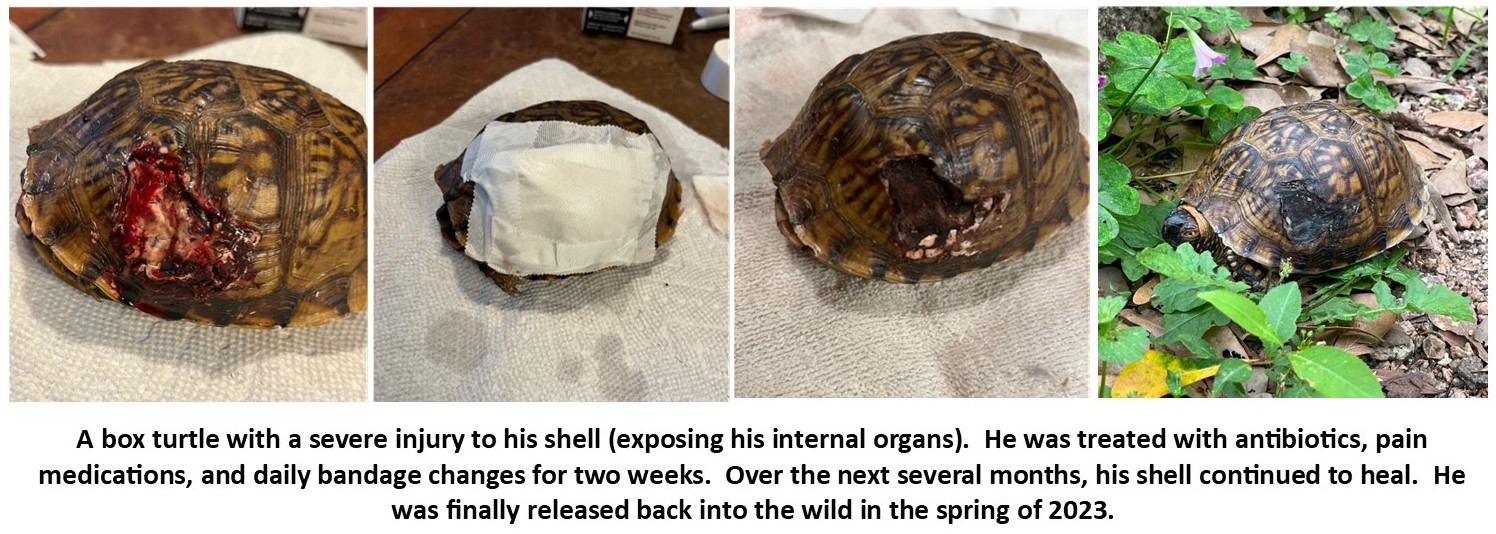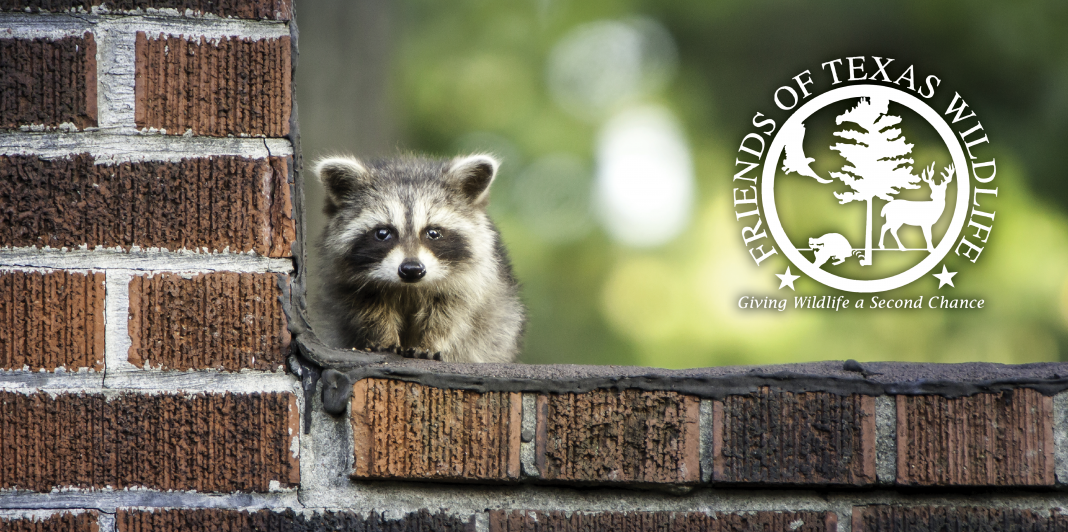Friends of Texas Wildlife: A Day in the Life of a Wildlife Rehabilitator
This month, we wanted to give a little information on what it’s like to be a wildlife rehabilitator. We often get inquiries about what is involved or required for the process of becoming a rehabber. This month’s article will give a little background information about a “day in the life”.
One of the main misconceptions about wildlife rehabilitators is that it is a career or a job. In the vast majority of cases, wildlife rehabilitators are volunteers, albeit highly trained volunteers. Unless one has the great luck to be affiliated with a teaching university or a large, funded state entity, wildlife rehabilitators need to access remote training at their own expense, and then also find someone in their geographic area who can mentor and train them as they continue to learn. Think of it as being a “wildlife apprentice”. Potential rehabbers can access remote courses and seminars, but they are generally hard to come by and they are not offered on any kind of a regular basis. For instance, the National Wildlife Rehabilitator’s Association offers a once-yearly symposium where excellent training for many species can be obtained. This symposium is held in a different location each year, and current and prospective rehabbers can attend at their own expense. There are also some wildlife groups and/or larger wildlife centers that offer in-person or on-line training classes. Other than in-person mentoring, these symposiums or courses are the main way most wildlife rehabbers get their training. Although rehabbers are not veterinarians (for the most part), they are trained in emergency care, triage, and can treat a wide variety of injuries. Rehabbers do work in tandem with licensed veterinarians for injuries that would require more extensive treatment (such as suturing, surgeries, and injuries that require major fracture stabilization). Training requirements vary from state to state, but most states require that both prospective and current wildlife rehabilitators have a certain number of training hours in order to apply for or renew the required permits.
 Speaking of permits, this is another common misconception. In most states, almost all wildlife animals are considered protected by the state, and possession of these animals (even for the purposes of helping them) is strictly prohibited unless a person has the applicable permits. In Texas, that includes almost all animals with fur, feathers, or scales. These animals cannot be kept by any individual who does not possess the proper permits. In addition to the state requirements, almost all birds and raptors are protected under the Federal Migratory Bird Act. The main reason for these prohibitions is that state and federal wildlife agencies want to assure that anyone being hands-on with wildlife animals has the proper training to assure the heath and safety of said animals as well as the humans who come into contact with them. There are many zoonotic diseases that wildlife animals can have, so proper training is very important. Permitted rehabilitators are required to keep very accurate records with regards to animal intakes to assure that, should it be necessary, contact tracing can be undertaken for any animals that may be infected with certain diseases.
Speaking of permits, this is another common misconception. In most states, almost all wildlife animals are considered protected by the state, and possession of these animals (even for the purposes of helping them) is strictly prohibited unless a person has the applicable permits. In Texas, that includes almost all animals with fur, feathers, or scales. These animals cannot be kept by any individual who does not possess the proper permits. In addition to the state requirements, almost all birds and raptors are protected under the Federal Migratory Bird Act. The main reason for these prohibitions is that state and federal wildlife agencies want to assure that anyone being hands-on with wildlife animals has the proper training to assure the heath and safety of said animals as well as the humans who come into contact with them. There are many zoonotic diseases that wildlife animals can have, so proper training is very important. Permitted rehabilitators are required to keep very accurate records with regards to animal intakes to assure that, should it be necessary, contact tracing can be undertaken for any animals that may be infected with certain diseases.
The main goal of any wildlife rehabilitator is to release a healthy animal back into the wild once it’s ready. While the idea of keeping a wild animal as a pet may seem tempting, this is strictly prohibited, and ultimately not in the best interest of the animal. Any wildlife a rehabber cares for MUST be released back into the wild. That is why so much effort it undertaken to prevent animals from being habituated or imprinted on their human caregivers. Again, the proper training here is imperative to prevent this from happening. Animals are taken in due to being displaced (tree cutting and land clearing are two main reasons), orphaned, or injured. Rehabbers are as hands-off as possible as they want wildlife to remain wild. A habituated or imprinted wildlife animal will never adapt well to the natural life it is meant to have. People often ask “isn’t it hard to release these animals after you have raised and/or cared for them for so long?” The answer is…release days should be happy days because it means that the rehabber has done the very best for the animal entrusted to them. While sometimes release days can feel a little bittersweet, the knowledge that you have returned a healthy animal to live the life it was meant to live is extremely gratifying.
 If you happen to find a wildlife animal that you think needs assistance, please reach out to a wildlife rehabilitator. There may be times when what you are observing is natural behavior (as in the case of fledgling baby birds or fawns left alone) and no intervention is required. If an animal is truly in need of care, as in the case of being injured, displaced, or thought to be orphaned, there are times when minimal intervention can be done (such as attempting reuniting with the parents). Due to the specific training rehabilitators possess, reaching out to them for advice or possible rescuing can go a long way to providing the animals the very best care available. If the animal you have found does need to be brought to a rehabber, please offer a donation if that is possible. Almost all wildlife rehabilitators are unpaid and unfunded; and the expense of caring for the animals is paid out of pocket by the rehabber. Your donation is vitally important and very much appreciated.
If you happen to find a wildlife animal that you think needs assistance, please reach out to a wildlife rehabilitator. There may be times when what you are observing is natural behavior (as in the case of fledgling baby birds or fawns left alone) and no intervention is required. If an animal is truly in need of care, as in the case of being injured, displaced, or thought to be orphaned, there are times when minimal intervention can be done (such as attempting reuniting with the parents). Due to the specific training rehabilitators possess, reaching out to them for advice or possible rescuing can go a long way to providing the animals the very best care available. If the animal you have found does need to be brought to a rehabber, please offer a donation if that is possible. Almost all wildlife rehabilitators are unpaid and unfunded; and the expense of caring for the animals is paid out of pocket by the rehabber. Your donation is vitally important and very much appreciated.
To learn more about what we do and view pictures of many of the animals we assist, please visit our Facebook page at www.facebook.com/SavingTexasWildlife. Details and more specifies-specific flowcharts regarding how to help found animals can be viewed on our website at www.ftwl.org (click on “Help and Advice”). These charts are extremely helpful to determine if an animal truly needs rescuing or not. If you need assistance with a wildlife animal you have found, please call us at 281-259-0039 or email us at [email protected]. We offer many educational programs (including camps, birthday parties, educational presentations, and Second Saturdays).
 In 2023, we will be offering several sessions of summer day camp.
In 2023, we will be offering several sessions of summer day camp.
In lieu of our usual Second Saturday in April, we will be offering our annual Open House on Saturday, April 15 from 10 am to 2 pm. More information about this event can by found on our website as well as our Facebook page. These events are held at our educational facility, located at 29816 Dobbin Hufsmith Road, Magnolia, Texas.















